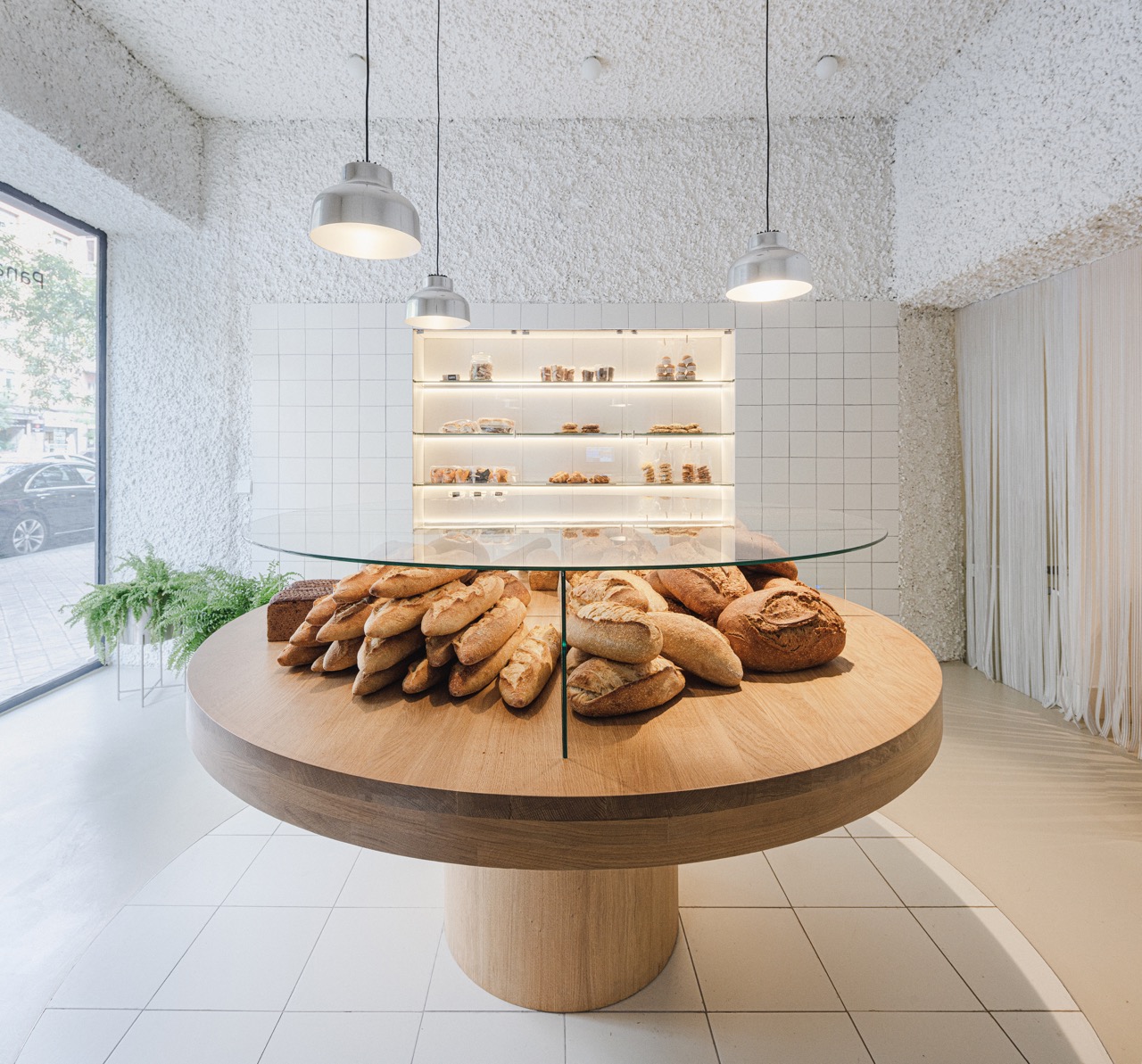There is something deeply ancestral and everyday in the act of breaking bread around a table. A table is more than just furniture: it is a collective gesture, an invitation to share, a space where the ritual of food turns into an experience. Starting from this idea, ZOOCO ESTUDIO have redefined the very concept of a bakery for El Horno de Babette, breaking away from the traditional separation between those who serve and those who consume. The architecture serves a clear vision: to create spaces that foster connection, encourage understanding of the product, and establish a more human and sensory relationship between the bakery and its customers.
At the core of the project is the desire to break away from the traditional retail layout, which often relegates the customer to a passive role behind a counter. Babette, on the other hand, proposes a radically different approach: the shop is designed as a domestic environment, warm and welcoming, structured around a large central wooden table where the bread takes center stage as a convivial and almost sacred element. Materials such as wood, glass, natural textiles, and warm, focused lighting contribute to creating an atmosphere that feels more like a home than a commercial space.
In the first of the three locations, at General Díaz Porlier 34, the design is clearly inspired by a dining room: the large solid oak table serves as the focal point around which the entire space revolves, immediately evoking a sense of familiarity. Everything works to recreate a domestic setting where bread is not just displayed but truly experienced, allowing customers to observe, choose, and interact directly with the product.
At the Orellana 16 location, the design takes inspiration from the obrador, the bakery workshop. The central wooden table remains a key element, but it is complemented by metallic partitions along the walls, organizing the bread into a functional and structured display. The material palette here becomes more industrial, incorporating microcement, terrazzo, glass, and metal profiles. However, the presence of wood and warm lighting softens the industrial feel, striking a perfect balance between artisanal craftsmanship and a welcoming ambiance.
Finally, the Paseo de la Habana 52 location reinterprets the concept in the language of the kitchen, the most intimate space of a home. At its center, a round wooden table is set upon a ceramic tile rug, which becomes the defining material of the entire bakery. The walls are clad in different-sized tiles, while microcement covers the floors, and sprayed cement finishes the upper walls and ceiling. Mirrored surfaces on the cabinet doors and the table’s central leg amplify light and space, creating an almost dreamlike dimension while maintaining a strong connection to the simple and familiar act of making bread.
El Horno de Babette is more than just a bakery; it is a manifesto of warm, authentic, and human spaces, where bread once again becomes the heart of the home, the story, and shared experiences.
An invitation, around a table, to rediscover the beauty of simplicity.
CREDITS
Project: El horno de Babette
Architects: ZOOCO ESTUDIO
Year: 2022
Location: Madrid, Spain
Photography: David Zarzoso












